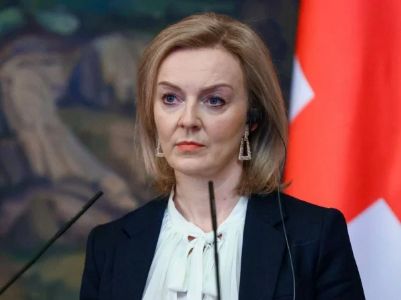
-
Published: 20 October 2022

Under the pressure of her economic program, which shocked the markets and divided the Conservative Party only 6 weeks after her appointment, British prime minister Liz Truss
announced, on Thursday, her resignation from the presidency of the British government and the presidency of the Conservative Party, confirming that she will remain in the post of prime minister until a successor is chosen.
Truss confirmed that she could not continue her duties, adding that the choice of her successor would be made with elections to be held within a week.
Speaking outside 10 Downing Street, Truss said: "in the current situation I cannot complete the task that the Conservative Party elected me to do. So I spoke to His Majesty King Charles III to inform him of my resignation from the leadership of the Conservative Party,"he said.
"I cannot carry out the mandate on the basis of which I was elected," Truss said, although she vowed to stay in power just a day earlier, saying she was "a fighter, not a surrender".
But Truss left on Thursday after she was forced to abandon many of her economic policies and lost control of the discipline of the Conservative Party.
Her departure left a divided party looking for a leader who could unite the warring factions.
The leader of the British Labor opposition, Keir Starmer, on Thursday called for a general election to be held "immediately" after Truss announced her resignation.
It is noteworthy that two days ago, Truss expressed "regret" for the"mistakes" she made in the economic file, a few hours after the new finance minister announced the rollback of all previously announced economic measures.
Liz Truss took office as the head of the British government on September 6, and is the last prime minister during the reign of the late Queen Elizabeth II, who died on the 8th of the same month.
In just 6 days, she lost two of the four most prominent ministers in the government and sat silent in parliament while her new finance minister announced the cancellation of her economic plans.
The British prime minister faced a tough questioning session in the House of Commons on Wednesday, from opposition parties refusing to continue it because of her economic plan.
The package of unfunded tax cuts announced on September 23 sparked turmoil in financial markets, the pound sterling exchange rate fell and the cost of government borrowing in the UK increased, prompting the Bank of England to intervene to prevent the crisis from reaching the macroeconomy and putting pensions at risk.
In Paris, French President Emmanuel Macron expressed hope that"stability will come to Britain as soon as possible".
In Moscow, Russia considered truss to have been characterized by"catastrophic ignorance".
